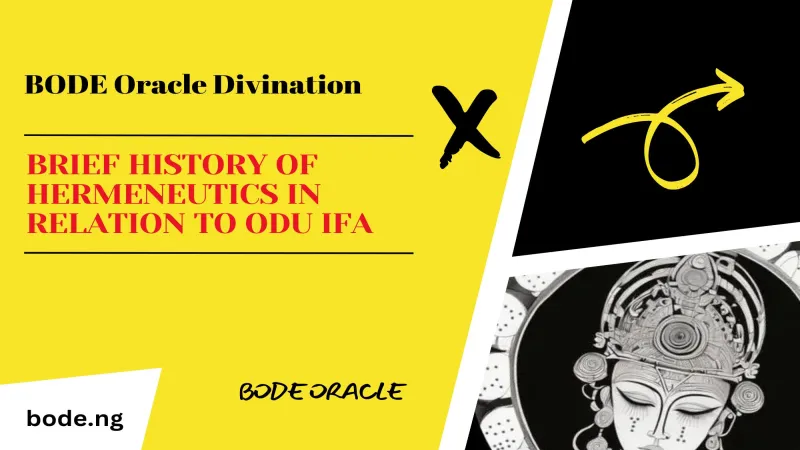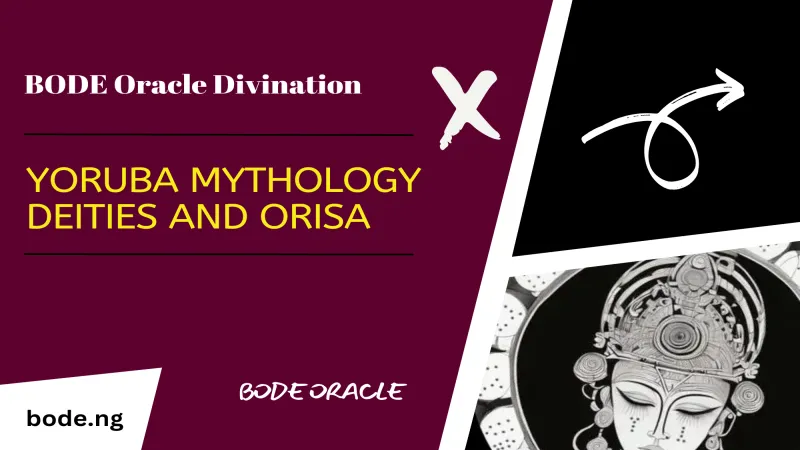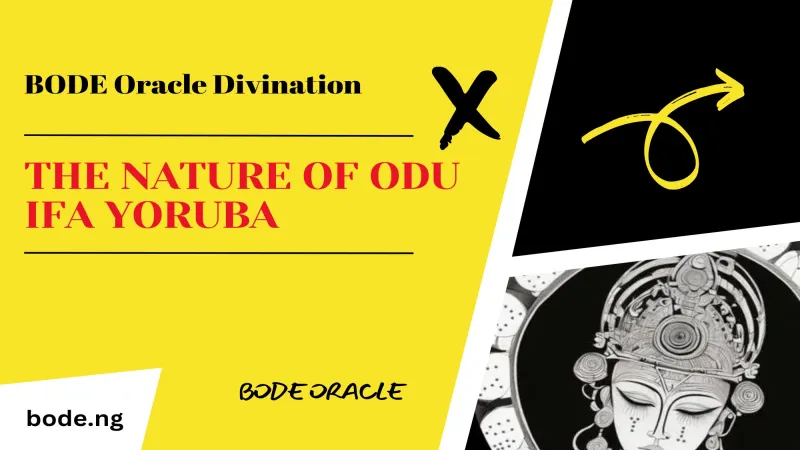When considering the Yoruba spiritual system, particularly Odù Ifá, hermeneutics plays a crucial role in interpreting the divine messages embedded within its verses.
Hermeneutics, the study and interpretation of texts, is an ancient practice applied across various cultures to understand sacred writings, laws, and philosophies.
Originating in ancient Greece, hermeneutics was traditionally used to interpret religious scriptures and later expanded into broader applications, including literature, philosophy, and even law.
In various religious traditions, hermeneutics has been used to reveal hidden meanings in sacred texts and to guide communities in living according to divine principles.
In Yoruba culture, the Odu Ifá is the sacred text at the core of Ifá divination, and it contains 256 chapters, each filled with verses that offer spiritual, ethical, and philosophical teachings.
These verses must be interpreted in the context of the individual's or community's situation. Ifá priests, known as Babalawos, serve as interpreters of the Odu Ifá.
They engage in a form of hermeneutics to provide guidance on how to live in alignment with divine wisdom. In the Yoruba spiritual system, the practice of hermeneutics has ancient roots.
The oral tradition of Ifá predates written scripture, with sacred knowledge passed down orally through generations of Babalawos.
People Also Read
Iwe Odu Ifa by Ifayemi Awopeju Bogunmbe
Odu Ifa Signs And How They Are Cast
The Structure Of Odu
Ifa preserves ancestral wisdom through an oral scripture, which takes the form of an extended poem divided into 256 sections, known as Odu. Each Odu contains between four and one hundred verses.
These verses serve as a tool for problem-solving, offering insight into the cause-and-effect dynamics influencing various situations.
In Western theological terms, the verses are mythic narratives that convey timeless principles, which can be applied to resolve both inner personal confusion and interpersonal conflict.
When these stories are arranged in different sequences, they act as a map, guiding consciousness through various stages of personal growth.
They address both everyday issues and challenges that unfold over longer periods of personal development. Over time, the tradition developed sophisticated techniques for interpreting the verses of Odu Ifá.
The Babalawos use divination tools, such as the opele chain or ikin (sacred palm nuts), to cast a sign that corresponds to one of the 256 Odu.
You Can Also Read More On
Orunmila: The Spirit of Destiny
Orunmila can be interpreted as "Orun" (the spiritual realm) + "mila" (knows who will be saved or healed). In this sense, Orunmila is the multidimensional spirit of destiny. Additionally, Orunmila is regarded as the "Prophet" or messenger of the Ifa spiritual tradition.
There are several ways to understand Orunmila: 1) as a pre-incarnated spirit who is "second to Olodumare"; 2) as a human who has incarnated multiple times to teach humanity the mysteries of creation and the laws of cause and effect; and 3) as the embodiment of the Ifa tradition in its theology and practices.
First, Orunmila is comparable to "Wisdom" in chapter 8 of the Book of Proverbs in the Hebrew Tanakh and Christian Bible. As Ela, Orunmila was present when Olodumare (or Olorun) initiated creation.
While the mystery of how this occurred remains with Olodumare, Ela/Orunmila, as a witness to creation, perceives and retains these mysteries in consciousness.
Read More
Therefore, Ela/Orunmila knows how to resolve challenges that arise during life’s journey and understands which ebos (offerings) are necessary to maintain or restore balance where needed.
Second, Orunmila serves as the "Prophet" or messenger of Olodumare and the Ifa/Isese spiritual tradition. Orunmila has taken human form to enlighten humanity.
However, according to tradition, Orunmila is unique in that he has incarnated multiple times for this purpose. As a prophet, he reveals the mysteries within the sacred 256 Odus, which are filled with parables, proverbs, and guidance.
Orunmila often appears as a central figure in these narratives, exemplifying "iwa pele" (good character) by properly consulting the oracle and adhering to its wisdom.
He is, therefore, the ideal model for following the theology and practices of Ifa/Isese. Lastly, Orunmila is often considered synonymous with Ifa itself.
Babalawos and Iyalawos are specially trained and initiated into these mysteries, teachings, and rituals. The suffix "awo" in Babalawo and Iyalawo means they are "fathers" or "mothers" of the mysteries.
They are viewed as descendants of the Prophet Orunmila and serve as priests and priestesses of the teachings and rituals contained in the 256 Odus and their associated knowledge.



